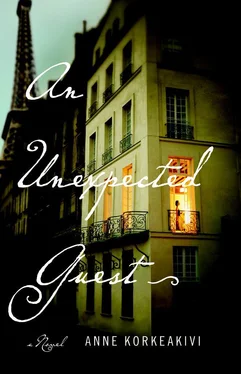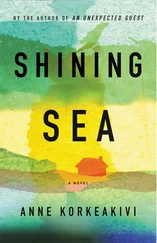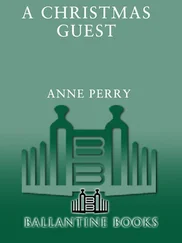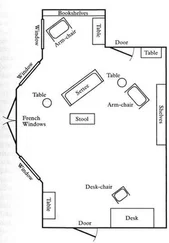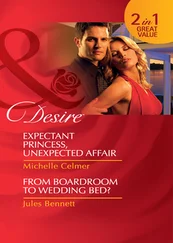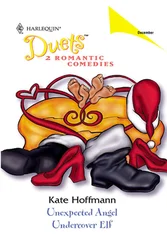They were lying on her bed at Aunt Elaine’s house. Everyone else had gone to the Cape for the weekend. Niall had refused — only later would she understand why he avoided the beach, even when the summer heat was beating down on them — and she’d made up some work she’d had to do for her summer internship at the museum so she could appear to have a good reason to stay behind also. This would be her first chance to be alone in the house with him. They weren’t lovers yet, not Saturday morning when the rest of the family’s cars backed down the driveway, but an hour later, when she stepped out of the shower, she’d found him sitting on the sink, unwashed, dressed only in jeans, waiting for her. She hadn’t been astonished.
“You—” she’d said.
He’d reached for a towel. “Come here.” He’d begun to dry her, starting with her long hair, which hung almost down to her waist, then moved on to her neck and shoulders, her back, her legs and feet. He’d ended with her hands. He’d dried each finger separately.
And, later, Sunday afternoon, still lying on her bed in the heat, for they seemed to have hardly left it in the past thirty-six hours, he’d asked what she knew about Ireland. She’d been stupid enough to try to impress him with her meager knowledge of the Troubles, and with her schoolgirl understanding of magnanimity.
“Shouldn’t they also have some say what country they live in?” she concluded, and he pulled his warm, sinewy body out from under her.
“You don’t know anything,” he whispered, stepping into his jeans. And then was gone.
Maybe she hadn’t known anything. Or maybe, as an American emerging from such a different perception of assimilation, she hadn’t been able to conceive of what life could be like for a poor, young Catholic boy growing up in Northern Ireland. The latter was what Niall had eventually decided when he’d apparently forgiven her and decided she was teachable. And taken her under his tutelage he had, telling her how the system had been rigged when he was a kid so the Catholics in Derry didn’t even have as many votes per head as Protestants, and often no vote at all, how someone like him couldn’t hardly get a job, never mind dream of going to uni, as he called college — injustices she’d heard about growing up but that took on sudden dimension when spoken with Niall’s rummaging cadences.
“My da back in Derry,” he’d told her. “He saw his neighbor’s son, just a lad, shot down on the streets of Bogside on Bloody Sunday. You know about Bloody Sunday?”
She’d nodded.
“Lying there bleeding in the street, and Eamon just a boy, barely seventeen. My da and some men got a car and tried to get him to hospital. The Brits stopped them on the way, arrested the lot of them. Called them terrorist yobbos, and Eamon there bleeding to death in the back of the car. And you know what, Clare? They gave all those British bastards medals.
“There is no solution left but Ireland for the Irish.”
And she’d believed him; she’d been ready to believe anything he said.
But, if he was right. If he, Edward, even the Turkish wrestler this morning — who’d told her so proudly of his village where his family had lived for centuries, who’d spoken with such distaste of the French, and, indeed, for Europe in general, excepting her and her dermal texture — were correct in their unfaltering visions of their home countries as unique consistent entities, where did that leave her children? Could the boys belong to both Britain and the U.S.? Where did that leave the hundreds of children forced to lay down new roots in neighboring or even distant nations thanks to wars in Vietnam or Somalia or, now, Iraq? Or by the end of colonization? Was the term “global identity” nothing more than a marketing tool? Were these children condemned to belong nowhere, ever?
“Back in my own home, I never lost,” the wrestler had told her.
Clare put down her pen. She tugged on a strand of hair, shivered in the spring breeze. She drew her sweater from the back of her chair and pulled it over her shoulders. Across from her, the TV was droning. She watched the screen without seeing for a moment, the feeling of spring pushing at her shoulders, the state of her thoughts pushing back against it. The release that the fresh air had brought her just a few moments earlier had mutated into something more melancholy, a bittersweet sense of futility.
Then, she saw the face on the screen.
“My God,” she said.
She rose from behind the desk and moved towards the television.
His face occupied a blue-background box in the corner. Clare squinted, stepped closer, then back from the screen, trying to shift the lines of the man’s image. Could she be seeing someone else? A relative? A stranger who happened to look so very similar?
But no matter where she positioned herself, nothing changed: the pocked skin, the heavy build, the half-closed smaller left eye.
She reached for the remote and raised the volume. A tanned but grim-faced newscaster was talking, his brown eyes level.
The suspect has been identified, the newscaster announced, as a signatory member of a reactionary nationalist group that has already been implicated in a number of assassinations in its own country. This particular foot soldier has never been convicted of any crime beyond a petty offense as a youth, unrelated, for which he spent three months in prison. He is believed, however, by the authorities to have been circulating in France for some time now and has been photo-identified by an eyewitness of this morning’s murder. The police were actively searching for him.
Clare clasped the collar of her sweater. In the photo they were showing, he was even wearing a cheap leather jacket.
A French parliamentarian, shot this morning at Versailles, Edward had said, then added, lowering his voice, dead upon arrival. She’d felt something like relief, washed with shame for her callousness: no one they knew; nothing to do with their children; unrelated to London, or either of their home countries. They would still use all that asparagus, rolled up in paper towel in the kitchen. Edward would still get his chance to prove himself to the permanent under-secretary. She would remain in the predicament she’d by then accepted as her lot.
“How awful,” she’d said, even as she pushed the murder a safe distance away from her own existence.
The newscaster was now riffling through a pile of papers. A communiqué, he explained in clipped French, lifting a sheet so stiff that the paper crackled, has been received by the French government from this same pro-Nationalist guerilla organization, condemning discussion of a law criminalizing the denial of Armenian genocide in Turkey in the early twentieth century and taking responsibility for the events of this morning, at 10:30 a.m. in Versailles, outside the French capital.
Clare twisted a lock of hair around her finger. His face had been shiny with perspiration. A problem with his kidneys, he’d said. He didn’t like to see European doctors, but he was here visiting a cousin. “I have go see doctor. Two weeks I no…I piss blood.” So much intimate information. “My wife, very good cooker. She makes a yogurt, mmm.” He’d smacked his lips. “Very very good. Very good for body, too. You live long life. You like eat lamb?” He’d spat out a laugh like a snort. “French lady, they want look more like stick we make kebab than kebab. No meat. You come my home,” he said, flinging his arms wide open, and she’d looked around them to make sure no one was nearby on the sidewalk, listening. “My wife feed you.”
“I have three son, one girl. You have child?” he’d asked.
“Oh, yes, children are very important,” she’d answered. “Do your children like yogurt?”
Читать дальше
